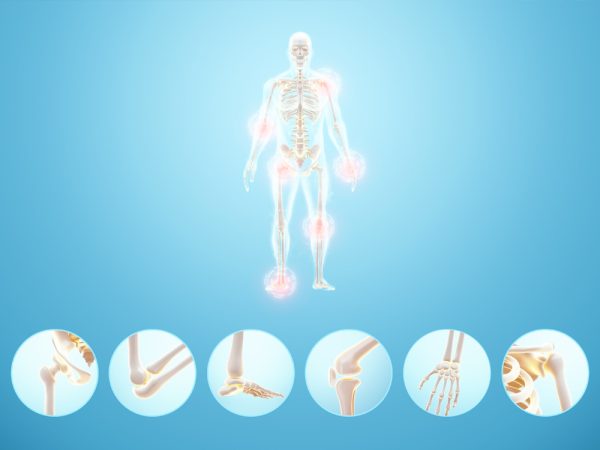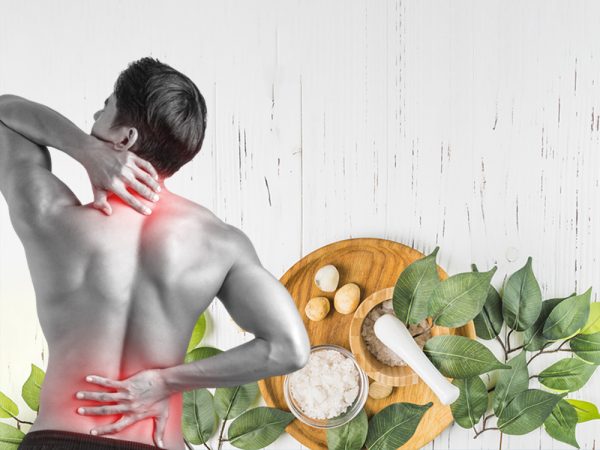
Pain is a powerful signal from your body, alerting you to potential harm. But chronic pain can become a health crisis, significantly impacting your physical and emotional well-being.
Arthritis, nerve pain, injuries, and overuse syndromes are all common culprits behind both acute (short-term) and chronic (long-term) pain. These conditions require a thorough evaluation by a healthcare professional for proper diagnosis.
Common examples include osteoarthritis and other forms of arthritis that cause joint inflammation. Nerve-related pain can arise from spinal disorders, stroke, or injuries like tennis elbow, knee injuries, or shoulder issues. Overuse can also damage soft tissues and bones, leading to back and neck pain, especially in the vertebral column. This highlights the complexity of pain diagnosis, as it can be caused by various factors and manifest differently depending on the underlying condition.

Understanding Pain from an Ayurvedic Perspective
Ayurveda, the ancient Indian medical system, offers a unique perspective on pain management. It views pain, called “Shula” in Ayurveda, as a symptom arising from imbalances in the three Doshas: Vata, Pitta, and Kapha. Vata Dosha, associated with air and space elements, governs movement and circulation in the body. When Vata is imbalanced, it can manifest as pain, especially in the joints and muscles. However, imbalances in Pitta (fire and water) or Kapha (earth and water) can also contribute to pain depending on the specific condition.
Ayurvedic Approach to Pain Relief
Ayurveda focuses on restoring balance within the body for pain management. Here are some key Ayurvedic therapies used for pain relief:
- Abhyanga (Oil Massage): Warm, medicated oils are used to massage the body, promoting relaxation, improving circulation, and reducing muscle tension.
- Swedana (Sweating Therapies): Steam cabinets, warm poultices, or herbal pastes are used to induce sweating, which helps eliminate toxins and reduce inflammation.
- Upanahana (Herbal Pastes): External application of herbal pastes specifically formulated to address pain and inflammation.
- Marma Therapy (Trigger Point Therapy): This specialized massage technique focuses on stimulating specific Marma points (vital energy points) to relieve pain and improve circulation.
- Single Herbs & Herbal Formulations: Ayurvedic practitioners may prescribe single herbs or polyherbal formulations (combinations of herbs) like decoctions, powders, or medicated oils tailored to your specific needs and Doshic imbalance.
- Lifestyle & Dietary Changes: Ayurveda emphasizes the importance of a balanced diet and healthy lifestyle practices to manage pain. This may involve dietary recommendations based on your Doshic constitution and stress-reduction techniques like yoga and meditation.
Benefits of Ayurvedic Pain Management:
• Natural Approach: Utilizes natural herbs and therapies to address pain without the potential side effects of conventional medications.
• Addresses the Root Cause: Aims to restore balance within the body, potentially offering long-term relief.
• Holistic Treatment: Addresses both the physical and emotional aspects of pain.
Modern Science and Ayurveda:
While more research is needed, some studies suggest that certain Ayurvedic herbs possess anti-inflammatory or analgesic properties. For instance, a 2019 study published in the International Research Journal of Pharmacy found that certain herbal formulations showed promise in managing pain [Ref: Mahesh et al., Int Res J Pharm, 2019 10(9)].
Taking Charge of Your Pain
Ayurveda offers a comprehensive approach to pain management, providing natural and effective ways to find relief. If you’re struggling with chronic or acute pain, consider consulting an Ayurvedic practitioner to develop a personalized pain management plan that complements your existing healthcare regimen. Remember, a qualified Ayurvedic practitioner can guide you on the most suitable options based on your individual needs and Doshic constitution.
Seek professional guidance
Find out more today at Indian Ayurveda Center at Blk 352, Clementi Ave 2 #01-101, Singapore 120352 !
